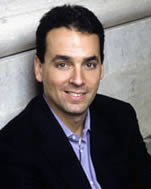Most of you who read our blog are frequently called on to speak to an audience. Whether it's the agents you supervise and train, or the company you run, you’re called to motivate people through your words and what you have to say.
I speak to groups, both large and small, fairly often and must confess that I frequently trap myself with the erroneous idea that I have to convey as much information as possible with what little time I’ve been given. When I fall into this trap, things don’t go well. Often times, when I have little time to prepare, I force myself to drill down to a central truth and wind up driving home knowledge in a more inspiring way. 
This faulty strategy of public speaking is exposed in a recent article by Daniel Pink, where Pink offers up three tips to help us better prepare for our TED presentations. While few of us aspire to speak publicly at this level, the tips Pink discusses offer a much better alternative for all of us, regardless of the level of public speaking we do:
"1. Prepare . . . but not too much.
These days, very few TED speakers arrive unprepared and just try to wing their presentations. That’s great. Preparing is a sign of respect for your audience — and the only way to wrangle your ideas inside an 18- or 9-minute fence. But lately I’ve seen a handful of people who were too prepared and too rehearsed. Their presentations were so heavily shellacked that they seemed inauthentic; their ideas suffocated under all that varnish. Remember: Human beings, despite their imperfections (and sometimes because of their imperfections), are far more persuasive than expertly-tuned presentation robots.
2. Say something important.
There’s a big difference between saying some important things and saying something important. Your goal isn’t to demonstrate how much you know or to catalog your many insights, but to leave the audience with one idea to ponder — or better, one step to take. When people hear some important things, their heads nod. When they hear something important, their souls stir, their brains engage, and their bodies prepare to act.
3. Say it like yourself.
Don’t mimic someone else’s style or conform to what you think is a particular 'TED way' of presenting. That’s boring, banal, and backward. Don’t try to be the next Ken Robinson or the next Jill Bolte Taylor. Be the first you."
Keep the above tips in mind the next time you speak to a group, and please let me know how it goes...
 Editor's Note: This article was written by Dr. David Mashburn. Dave is a Clinical and Consulting Psychologist, a Partner at Tidemark, Inc. and a regular contributor to WorkPuzzle. Comments or questions are welcome. If you're an email subscriber, reply to this WorkPuzzle email. If you read the blog directly from the web, you can click the "comments" link below.
Editor's Note: This article was written by Dr. David Mashburn. Dave is a Clinical and Consulting Psychologist, a Partner at Tidemark, Inc. and a regular contributor to WorkPuzzle. Comments or questions are welcome. If you're an email subscriber, reply to this WorkPuzzle email. If you read the blog directly from the web, you can click the "comments" link below.




Comments